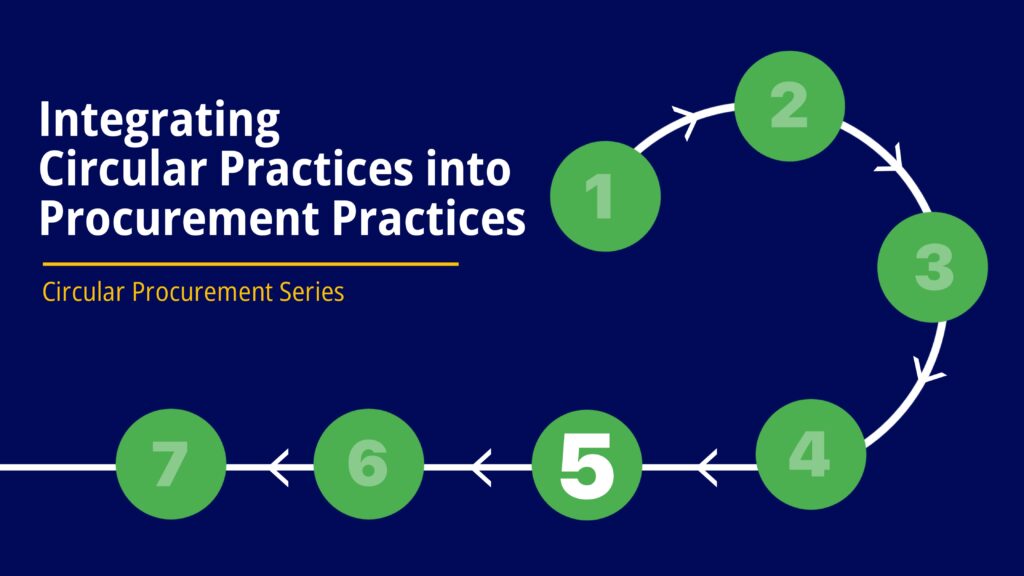Integrating Circular Practices into Procurement Processes

With a growing concern for environmental sustainability and resources conservation, circular procurement is an approach to purchasing works, goods and services to reduce reliance on virgin materials, keep materials in use for longer, reduce environmental impacts, promote sustainable business practices, and support businesses which promote circular business models. Asides the other benefits of integrating circular practices into procurement such as the less extraction of raw materials for production, extending the longevity of products and materials, allowance for innovation which in turns ripples economic growth, creation of green jobs and opportunities, decrease in waste generation, one key role of circular procurement is to support businesses and organisations to transit from linear economy to circular economy.
Integrating circular practices into procurement processes is one that is commendable and important for the successful transitioning from a linear to circular economy, however, there are roadblocks to effectively integrating circular practices into the purchasing processes:
- Resistance from organisations as a result of lack of awareness on the importance of green procurement and practices
- Purchasing green products and services usually come with an initial high cost which may not be a good option to be explored for businesses and organisations with small budgets.
- Identifying circular products and services suppliers can sometimes be a herculean task as circularity is yet to be mainstreamed across all sectors and processes. This hinders the accessibility of circular materials and services.
- There is a concern with quality in practising circular procurement as some of these available green materials and products do not match the quality of non-green products.
The above challenges cannot be swept under the carpet as they influence the decision of businesses and organisations when it comes to procurement. To overcome the challenges of resistance and high initial cost of green procurement, businesses and organisations practising green procurement must be highlighted to encourage other stakeholders to actively integrate circular practices in their procurement processes. In addition, organisations can integrate fundamental circular practices into their overall procurement process, such as:
- Prioritise Reusables: Choose products that are designed for durability and can be reused over an extended period as long as 10-15 years or longer. This minimises the need for frequent replacements and reduces overall waste.
- Source Locally: Whenever possible, procure goods and services locally to minimise transportation-related emissions. Supporting local businesses also contributes to the overall sustainability of your community.
- Explore Product-as-a-Service Models: Instead of owning products outright, consider leasing or subscribing to services where the product’s lifespan is extended, and responsibility for maintenance and end-of-life disposal rests with the supplier.
- Demand Transparency: Request information from suppliers regarding the sustainability practices of their products, including material sourcing, production methods, and environmental certifications.
- Energy Efficiency Considerations: Choose products that are energy-efficient, helping to reduce the environmental impact throughout their use phase.
- Waste Reduction Strategies: Implement waste reduction measures by working with suppliers to minimise excess packaging, explore take-back schemes for used products, and find ways to repurpose or recycle discarded items.
Partnerships with sustainability oriented businesses will also go a long way to keep businesses and organisations informed on the best green alternatives and suppliers available reducing concerns about accessibility and quality issues.
Integrating circular practices in procurement processes comes with a set of challenges and barriers, nonetheless, with access to information and a solid procurement strategy, organisations can gradually and successfully adopt the green procurement approach thereby adapting to a sustainable business operating model.







